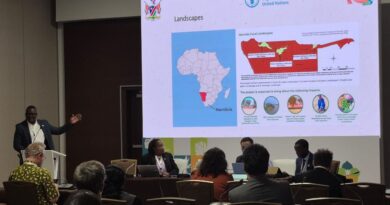IMF Approves Zambia’s US$184M Disbursement, Cites Positive Outlook
The Executive Board of the International Monetary Fund (IMF) has completed the 2025 Article IV Consultation and the fifth review under Zambia’s 38-month Extended Credit Facility (ECF), unlocking an immediate disbursement of SDR 139.88 million (approximately US$184 million). This brings Zambia’s total disbursements under the program to SDR 1.13 billion (US$1.55 billion) since its approval in August 2022.
The ECF-supported program is aimed at reinforcing macroeconomic stability, restoring debt and fiscal sustainability, strengthening public governance, and promoting inclusive growth.
According to the IMF, Zambia’s program performance has been broadly satisfactory. All end-December 2024 quantitative targets and most end-March 2025 indicative targets were achieved, although shortfalls were noted in non-mining tax revenues, arrears clearance, and reserve accumulation. Out of 14 structural benchmarks assessed during the review, six were met, four completed with delays, while the remaining four have been reset to the next review.
The IMF commended the Zambian authorities for aligning the amended 2025 budget with program commitments and granted a waiver for the nonobservance of the continuous performance criterion related to non-concessional borrowing in late 2024.
Zambia’s economic recovery remains on track, with GDP growth for 2024 estimated at 4 percent, driven by improved electricity access to productive sectors and strong performance in mining and services. In 2025, GDP is projected to rise to 5.8 percent as agriculture recovers from the impact of a historic drought. Inflation is expected to ease to 11.1 percent by end-2025, down from 16.7 percent in 2024. However, the IMF warned that the outlook faces downside risks, including global uncertainties and domestic fiscal pressures.
Despite Zambia’s public debt being deemed sustainable, the country remains at high risk of debt distress. The IMF noted that Zambia has reached agreements in principle with most external commercial creditors and continues to pursue bilateral agreements with official creditors, in accordance with the Official Creditors Committee framework.
Executive Directors of the IMF welcomed Zambia’s economic stabilization progress and highlighted the importance of continued reforms to reduce debt vulnerabilities and promote private sector-led inclusive growth. They praised the revised 2025 budget for its new revenue measures and spending reallocation, urging further domestic revenue mobilization and improved tax administration. Budget discipline, particularly ahead of the 2026 elections, was strongly emphasized.
On monetary policy, the IMF recommended that the Bank of Zambia maintain a tight, data-driven approach to anchor inflation expectations. Directors supported measures to deepen financial markets, accumulate foreign reserves, and allow for greater exchange rate flexibility to withstand external shocks.
Directors also underscored the need for structural reforms to promote economic diversification and private sector growth. Key areas of focus include enhancing labor productivity, firm expansion, agricultural support reform, and improved access to finance. Strengthening governance, through the prompt adoption of the new Anti-Corruption Act and reinforcing the independence of the Anti-Corruption Commission, was also identified as a priority.
Zambia’s next Article IV Consultation will be scheduled in line with IMF protocols for countries under active Fund arrangements. The full staff report for this review will be made publicly available on the IMF’s website, following the Zambian authorities’ consent.



